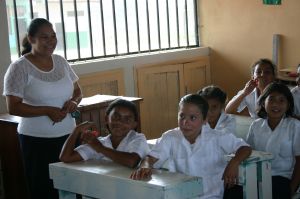Speaking at a forum on student achievement last night, Professor Stephen Dinham, Chair of Teacher Education at the University of Melbourne’s Graduate School of Education, said attempts to boost student self esteem in inauthentic ways, such as avoiding criticism and handing out unearned praise, are failing some of our most vulnerable students.
"We know self esteem does influence student achievement but, unfortunately, some schools attempt to do this in inauthentic ways, such as avoiding negative criticism and providing only ‘positive reinforcement’. If we over-inflate student self esteem in this manner, they will struggle when they get out into the wide world," he told the audience last night’s University of Melbourne alumni event.
Professor Dinham pointed out schools focusing too much on ‘welfare’, particularly in low socioeconomic areas, create a low expectations model that condemns students to low achievement. However schools focusing too much on the ‘academic’ at the expense of the personal are getting it wrong, too.
"Our education system is riven with false dichotomies. The ‘welfare’ and the ‘academic’ approaches are both wrong. What research shows is that the best teachers and schools, including those in disadvantaged areas, have a balanced focus on every student as a learner and a person.
We can authentically boost student self esteem by ensuring every student feels they are achieving success and making progress. We do this by providing meaningful feedback – which includes constructive criticism."
According to Professor Dinham, a fundamental mistake was made in the 1960s when, in line with wider societal changes, schools rightly became more responsive to students as individuals. Mistakenly, being responsive to students was interpreted as also being less demanding and many schools therefore became more permissive.
"We’re still paying the price for the mistakes we made in the 1960s," Professor Dinham said. "A preoccupation with building student self-esteem through a permissive approach in the hope that this will translate into student achievement and development is counter- productive.
The best teaching style is one where high responsiveness to individual student needs is combined with demands for students to achieve their best academically and conform to acceptable standards of behaviour. Real achievement is the best way to boost self-esteem, which can then lead to further success," he said.






-160x160-state_article-rel-cat.png)














